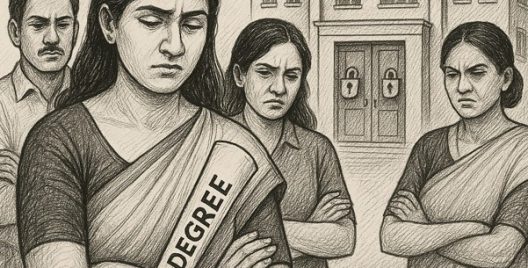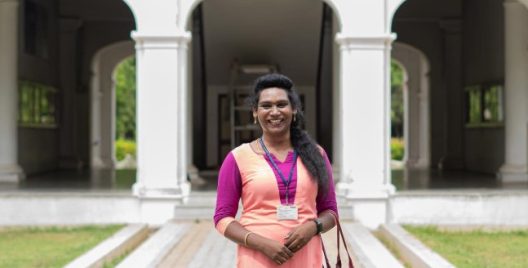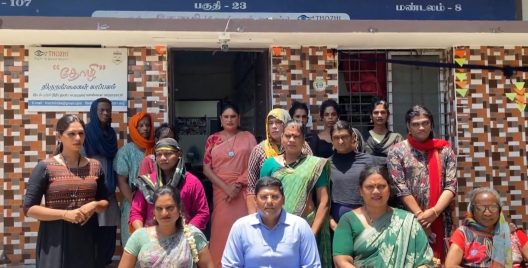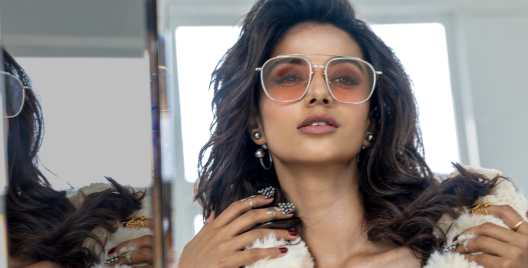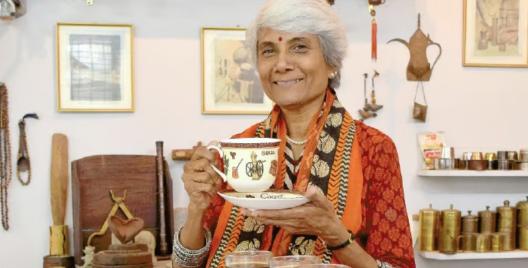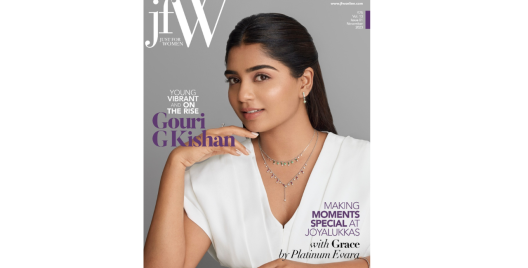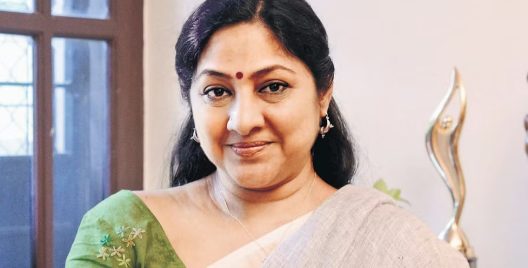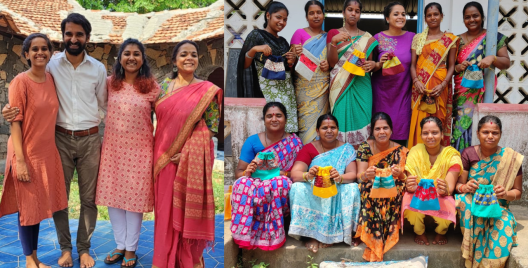Sustainability is the need of the hour, eco-friendly solutions are what one is looking for when it comes to daily-use products. Thenga Coco in Kerala offers simple and sustainable solutions made out of coconut shells, that would otherwise go to waste. Maria Kuriakose is the founder of Thenga Coco, which recycles coconut waste to create handmade products for home and kitchenware. A self-sustained brand that consists of a team of mostly women, we spoke to Maria about the company, its vision and plans for the future.
Her Story
I was born and brought up in Kerala. I was interested in Economics and Business, so I pursued my graduation from St Xaviers. While I was studying there, I got a scholarship to study in Spain for my MBA. After completing my MBA, I got a job at a consultant firm in Mumbai where we did leadership consulting for corporate companies. I was always passionate about startups and had a specific interest in social enterprises. I’ve always wanted to be able to do something for the community. When I came to know of the term- social enterprise where I could bring both, my love for start-ups and my inclination towards social work, I decided to explore it. I wanted to do something where I could start an efficient business but at the same time, create impact.
While I was working at a corporate job, I came across this organisation called Myna Mahila Foundation where they were employing slum women to manufacture sanitary pads. I was managing the production and sales team, they were a team of 12 women who were making the pads. The idea was to create awareness and at the same time, create a product which would help us generate money and profits. It was not dependent on any charity or funds from other organisations, we were generating our own money. I moved from my corporate job and worked here for a couple of years. During this time, I had this feeling that I wanted to come back to Kerala. I’ve always been passionate about natural and sustainable products, I’m someone who’s always been close to nature. I wanted to be able to create something of value for customers and also create employment and help people in backward communities.
Whenever I was back in Kerala for holidays, I would try to find out what natural materials I could use to make. Coconut is known as the ‘Kalpavruksha’ since every part of it is used to sustain life. In Kerala, the main product we get from coconuts is the oil and everything else is usually discarded. Sometimes I felt that simple solutions are often ignored, we could make small changes and make a bigger impact.
Vision Behind Thenga Coco

If we could generate products out of the waste created by the coconut oil factories, it’s not just the products that we are creating, we are utilising the by-products to their maximum capacity. If I’m able to create something of value from the shell or the coir, then I will be creating some positive change. When I was researching what business to start, it was not just to find a product that our consumers wanted, but to find out how it would impact the environment. There were a lot of challenges especially to create products that would be able to compete with plastic or steel products.
I experimented with different products initially, I made planters with coir, and I would visit nurseries and potential clients and try to sell my products. I was trying to study the market as to which products are working. I also experimented with coconut water, because I saw that in most oil-making units, the coconut water is discarded. I researched if something could be done with that water. Even though I wanted to start a business, there were barriers. I have no business background, nor does my family. And no funding to start a business, with these constraints that I had, I had to get creative.
How it all came together
So, in Kerala, we use the coconut shells as spoons and ladles for congee. But because of the inflow of very cheap steel and plastic products, it has been replaced. Once when I was home, I repurposed the coconut shells in my home to make ice cream bowls. And I sent it to a few businesses to see how they would respond. I had sent samples to a few businesses in Bangalore and Delhi, and I got orders from both cities, for 50 and 100 pieces each. That’s when I realised that there is a demand for something sustainable. I got them engraved with the brand’s logo and the companies were impressed by that.
The challenges
The thing with natural products is that it’s hardly uniform. With coconut shells, we faced the same challenge. A little bit of variation is usually acceptable, but one very big coconut bowl and one very small won’t work. A range, for example, 300-400 ml or 100-200 ml is what people look for. When I went to collect 100 shells for this order, I realised that it was very difficult to find 100 of them of similar size. It took me weeks to find those 100 shells and then there was sanding and buffing.
People from business backgrounds told me that this was not going to be financially viable. Initially, it sounded good, that people were ready to pay money to buy a product made out of a wasted shell but the finishing and finding of shells took time. Although a lot of people questioned my choices, I knew that I had to try.
What We Make
Our motto is to create daily-use products which would replace plastic. Initially, we started with bowls, as per the feedback of the customer, we started doing more tableware like cups, cutlery, and wine/ shot glasses. Shells are not easy to work with, unlike flat wood, these are curved. And no two shells are the same. During Diwali, we introduced candles, soy wax in coconut shells and tea-light holders. We got enquiries from plant nurseries, since coconut shells are porous, they will keep the plant’s roots cool, so we designed a few planters.
Our Team

As the orders increased, we expanded. Now we have 18 artisans who work with us exclusively. We have artisans who do only specific products like wine/ shot glasses are done by one person because they have gained expertise over time to create the best quality. The traditional art form was being utilised since people had started buying the cheaper variant-plastic. So by being a part of our network, they were able to do this regularly without looking for alternative work.
Our team comprises mostly women, out of 18 artisans, 12 are women and 6 are men. Our operations team who manage the orders and dispatch are all women. It was a conscious decision to employ mostly women but that doesn’t mean that we wouldn’t hire men. We are inclined towards creating more opportunities for women. Most of the time, we see women get held up with household responsibilities. I want to create a flexible work environment for women.






